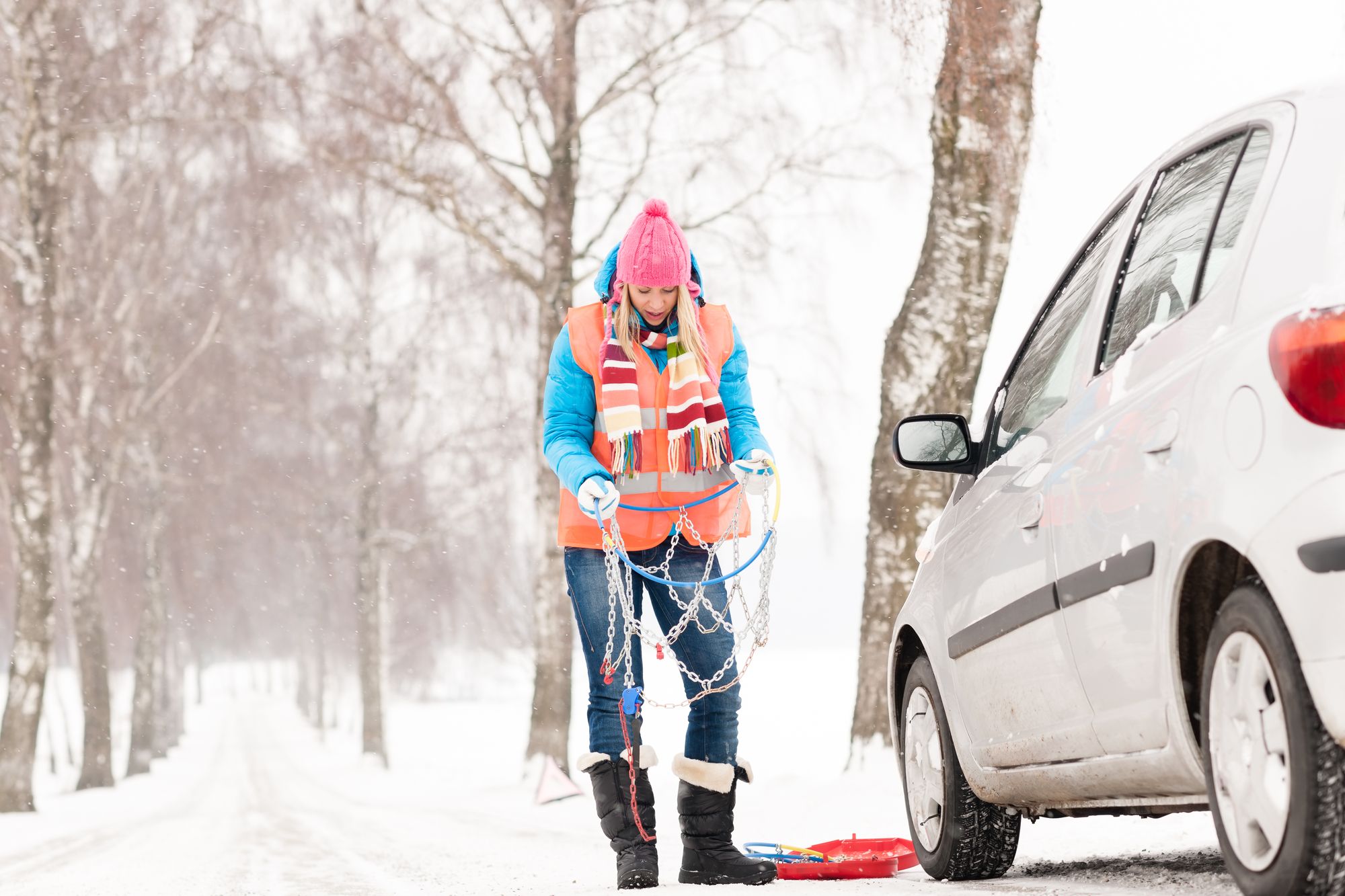Oh no! The weather forecast predicts snow next week and you want to be prepared! Should you put chains on your car? Should you get an entirely new set of tires? Should you pledge to never leave your house again? Before you start freaking out, Wrench is here to help answer some of your “burning” questions about driving in the snow. The best advice we can give is to stay up-to-date on the maintenance schedule in your car’s owner’s manual so that your car is in the best shape possible when the weather takes a turn for the worse. You do not want to enter the winter months without checking your fluid levels, windshield wipers, or taking any other precautions. Schedule an appointment with Wrench today if your car could use a tune-up before the temperature drops. When it comes to tires, however, there are several different things you should consider before making a decision that is right for you and your car. Wrench is here to help you learn more about when chains are necessary, what the alternatives are, and how to determine what is best for you.
Get a free quote
Does my car need chains?
The long story short is that it depends. Type of vehicle, weather conditions, and whether you have two-wheel-drive, four-wheel-drive, or all-wheel-drive are all factors in determining whether you should put chains on your car. If you are driving in an urban area that is likely to get plowed, the chances are you probably do not need to put chains on your car. However, if you are in a rural area or the weather conditions are extremely wet and snowy, chains can help with maintaining control on the road. In some mountainous areas, chains are required on all vehicles. This may be the case even if your car is equipped with winter tires, so it is important to check state regulations if you know you are heading into a new region during the winter. The placement of chains also depends on what kind of car you drive. Front-wheel-drive vehicles should have chains only on the front tires, and the back tires for rear-wheel-drive. It is recommended that chains are put on all tires for cars with all-wheel-drive, but check the owner’s manual just in case, because it may tell you that the front or back will suffice. Do not assume that your car will never need chains just because it has AWD, four-wheel-drive, or snow tires. As we mentioned before, some areas require tire chains when crossing mountain passes, and for your own safety it is best not to assume that your tires can handle it.
When should I put on the chains?
The best advice we can give is to practice putting chains on your car’s tires before you find yourself in a situation where they are absolutely necessary. When you find yourself in a situation where you need to put chains on your car’s tires immediately because the weather has taken a turn for the worse, do you not also want to be anxious about putting on the chains for the first time. Practice at home when the weather is nice so you get comfortable with the process. Additionally, you want to make sure you always have a pair of sturdy gloves in your car because it will be extremely cold when you are putting the chains on your tires.
What chains are best for my car?
If you have decided that investing in chains is necessary for your vehicle, do not go out and buy the first set that you find. You want to make sure that you are buying the best chains for your car, so do some research before you make a purchase. You will want to take into consideration any tire chain restrictions, which will be noted in the owner’s manual, as well as the size of your tires and how frequently you will use the chains. Chains can range from $50 to $450, so you’ll want to do some research before making this investment.
We hope you have a better idea of what the best decision is for your car when it comes to putting chains on your tires. The best thing you can do for your car is to be more careful than not, and a big part of that is determining what the safest option is going to be for winter tires. Whether you are heading out on a ski trip, living in a hilly city, or commuting to work, it is important to be prepared for any type of weather, which may just mean keeping your chains handy and knowing how to put them on in a pinch. As long as you prepare now, your car will thank you later! For more information on how to prepare your car for winter, click here. If you have any other questions about winter car repairs or using Wrench in a global pandemic, feel free to talk to our customer service team through email, at hello@wrench.com, or by phone, at 844-997-3624.
Get a free quote


